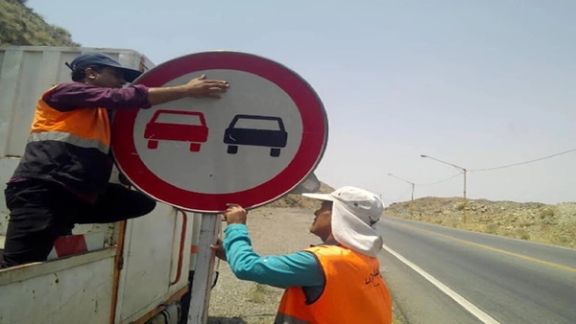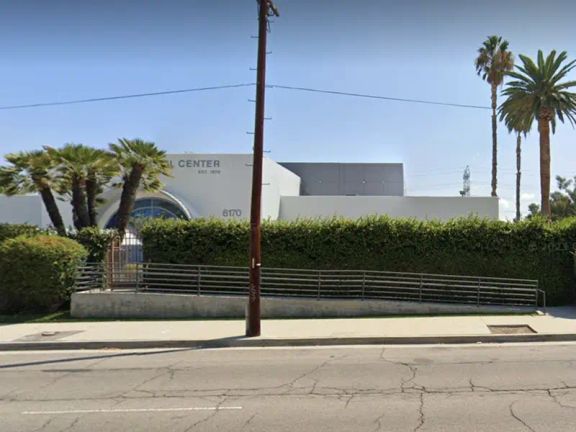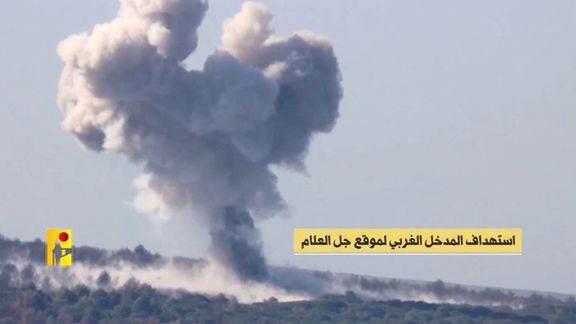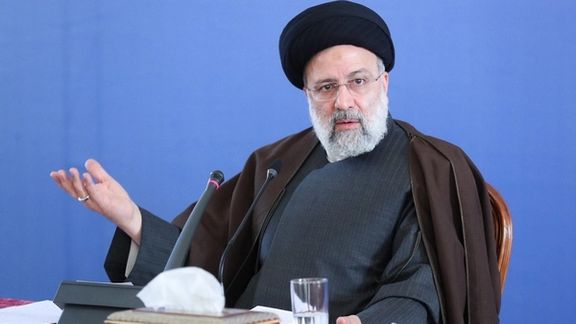Theft Of Signs, Safety Equipment Plagues Iranian Roads

Iran is grappling with an alarming trend of people stealing road signs and safety fixtures on the roads, amounting to up to two million dollars annually.

Iran is grappling with an alarming trend of people stealing road signs and safety fixtures on the roads, amounting to up to two million dollars annually.
Reza Akbari, the deputy of the Road and Transportation Organization, revealed the statistics in a statement to the ILNA news agency on Saturday.
Akbari disclosed that a significant portion of the stolen equipment, including safety signs, finds its way to scrapyards, with the possibility of contractors themselves being implicated in the thefts. He highlighted that a concerning number of items are pilfered by low-income individuals, often grappling with addiction.
The issue has been on the radar for some time, as Akbari had previously drawn attention to the rising trend of road equipment theft in Iran. He emphasized the difficulty in imposing penalties on thieves, who belong to impoverished segments of society.
"Such thefts extend beyond the country's roads and are notably higher in cities, particularly Tehran," Akbari asserted.
In addition to the thefts plaguing road infrastructure, recent years have witnessed a surge in reports of power outages and disruptions attributed to the theft of power cables. Observers link the disturbing trend to the increasing spread of poverty.
The situation has escalated with reports of thefts extending to crucial items like water pipes, exacerbating crises such as lack of water.
Official figures from the interior ministry indicate that approximately 60 percent of Iran's 84 million population live below the relative poverty line. Between 20 to 30 million Iranians find themselves in a state of "absolute poverty."

In a foreboding sign for Iranian politics, the Interior Ministry has disqualified more than a dozen sitting members of parliament from running in the March elections.
The Interior Ministry has conducted the initial screening, and additional candidates, including current members of parliament, are anticipated to face disqualification by the conservative Guardian Council, operating under the direct supervision of Supreme Leader Ali Khamenei.
For months, there has been speculation among politicians and commentators about whether the March elections would be more competitive, after two scandalous elections in 2020 and 2021, when most non-hardliner candidates were barred in a highly questionable vetting process.
Three of the five MPs are lawmakers from Tabriz including outspoken Ahmad Alirezabeigi. He revealed a significant case of financial corruption involving over one hundred members of parliament who were purportedly bribed by a former industry minister to avoid impeachment. The alleged bribe involved hundreds of SUVs gifted to dozens of lawmakers.
According to Shargh daily, the other lawmakers from Tabriz who has been disqualified by the Interior Ministry are Massoud Pezershkian, a staunch reformist critic of the Raisi administration, and Alireza Monadi. During the past four years, Pezeshkian has harshly criticized the government for the large exodus of Iranian medical staff to other countries to evade hardships brought about the current economic crisis blamed on the regime’s adversarial foreign policy.

Pezeshkian had also criticized the government for the shortage of medicine, rising prices and other matters on various occasions. Meanwhile, as a reformist lawmaker, Pezeshkian also criticized his colleagues in the parliament (Majles) for chanting slogans such as death to other countries, instead of trying to correct the state of affairs in Iran. "We need to tolerate others and work and collaborate with the world," he said adding that "we need to create solidarity inside Iran." He has also called for reforms in Iran and demanded the replacement of Raisi's inefficient cabinet ministers.
Another outspoken lawmaker who has been barred from running for the next parliament is Gholamreza Nouri Ghezeljeh who is very well known for his criticism of the Raisi administration's economic policies and the failure to control the inflation rate in Iran. Ghezelje is also a staunch critic of the government's restrictive cultural policies including the bill to restrict Iranian's access to social media.
In one of his latest speeches at the Majles he lashed out at the government for attempting to invade Iranians' privacy through a plan officially introduced as a bill to "monitor the citizens' lifestyle." While the Majles was approving the bill last Tuesday, Ghezeljeh pointed out that such a monitoring is against Article 25 of the Iranian Constitution which bars the government from spying on citizens’ private lives. He warned that any study of lifestyle should not include the private lives of citizens and invasion of their privacy.
Another outspoken MP also barred from re-election is Jalil Rahimi Jahanabadi, a member of parliament's National Security and Foreign Relations Committee. He told the press that he will take his complain about his disqualification to God almighty.
An advocate of openness to international community, Jahanabadi has continuously supported the Idea of Iran joining international conventions such as the FATF conventions against money laundering and financing of terrorism. Last month, while Iran's radicals and hardliners were once again blamed for the impasse in the country's economy, politics and foreign policy, Jahanabadi called for a powerful reformist minority in the Majles to counterbalance hardliners. He said: "We need to harness and control the radicals. A powerful reformist minority can have a good impact on the Majles."
Jahanabadi is also known for a comment in August in which he acknowledged that the consequences of last year's protests continue to impact the nation's psychology.
The disqualified MPs may appeal the Interior Ministry's verdict, however, the totalitarian government in Tehran, needs to have some of its critics punished by disqualification as a lesson for the new lawmakers who win the next Majles.

In an incident in Tarzana, Los Angeles, a 54-year-old woman, apparently of Middle Eastern descent, named Tikvah Mottahedeh was arrested on hate crime charges this week.
She allegedly rammed her vehicle into the gates of the Eretz Synagogue and Cultural Center on Wilbur Avenue, not once but twice, just after midnight on Thursday.
The Los Angeles Police Department took Mottahedeh into custody for vandalism as a hate crime on a house of worship. The synagogue, which became the target of the attack, suffered damage to its gates.
Investigations revealed that Mottahedeh had an Instagram account under her name, featuring posts in Persian, Hebrew, and English. The account included critical writings against the government of Israel and the policies of the Iranian government. Similarly, her Meta (Facebook) account indicated that she is an Iranian Jewish woman.
However, Iran International cannot confirm whether the social media accounts truly belong to the assailant. The United States has detained her on a $25,000 bail but further details of the incident have not been disclosed.
The incident follows a series of anti-Jewish attacks in different countries, notably after Hamas's attack on Israel on October 7, leading to conflict in the Gaza Strip.
German Chancellor Olaf Scholz said in reaction on Thursday that he was "ashamed and outraged" at a recent wave of antisemitic incidents in Germany, warning Berlin would not tolerate such anti-Jewish hatred.
Metropolitan Police Commissioner Mark Rowley had earlier called for stringent laws to combat extremism, especially in the aftermath of the Hamas-Israel conflict, highlighting a "gap" in dealing with extremism within the existing legal framework.

Two people have died and one is missing in recent floods, according to the Iranian Red Crescent Society, amid more than decade-long drought in the country.
The head of the Rescue and Relief organization provided information regarding flood operations from November 2nd to 11th.
Babak Mahmoudi reported that more than 2,600 people in 13 different provinces in Iran were affected by flooding and received relief.
Furthermore, two people were reported dead in Golestan province, north of Iran, and a 40-year-old woman had gone missing in Semnan province.
The Red Crescent official announced they provided relief to 2,603 people, relocated 68 people to safe areas, and provided emergency accommodation to 270 individuals.
A recent report by World Weather Attribution stated that the drought which lasted 36 months from July 2020 to June 2023 in Iran, Iraq, and Syria, was “the second worst in the observed record.” However, Iran has been increasingly facing less precipitation since the early 2000s and its underground water resources have significantly declined.
According to the study, war and post-war transition, rapid urbanization in the face of limited technical capacity, and regional instability all contributed to the negative outcomes of the drought in the region. At the time of the report, the Ukraine war significantly affected food and energy prices. There is a possibility that the situation will deteriorate due to the ongoing Gaza war.
The Iranian regime has come under harsh criticism for its mismanagement of the environment, especially its water resources, as well as the treatment of activists in this field. Recent years have seen a number of Iranian environmentalists convicted of espionage for the US and UK governments and sentenced to prison.

Hezbollah and Israel announced successful mutual attacks on Friday, raising concerns that a month of limited operations could eventually lead to an all-out war.
The Israeli military confirmed it had struck targets in southern Lebanon, in response to drone and missile attacks on its forces. Hezbollah, for its part, published a video purporting to show its aerial operation.
Reporters who have visited the border areas of Lebanon and Israel say the reality on the ground is more serious than many think and that “there is a sense of impending conflict."
Hezbollah leader Hassan Nasrallah is scheduled to speak Saturday at 3pm local time. This will be his second public appearance since October 7.
In his first speech, Nasrallah praised Hamas and denounced Israel but fell short of calling for war. He did say at the end, however, that the current conflict with Israel was of a different order to the previous ones, and that he was leaving all military options on the table.
Most experts say Nasrallah is reluctant to risk a full-blown war with Israel. But some say his second speech could be different, particularly given the scale of killings in Gaza.
On the eve of that speech, Hezbollah media have published a short video featuring soundbites of Nasrallah intercut with images of their operations. The video is titled “And it will not stop at that” –a title that could be read as a signal of potential escalation.
On Thursday, Iran’s foreign minister said that “with the intensification of the war on civilians in Gaza, expansion of the scope of the war has now become inevitable.”
Shortly after, Amir Saeid Iravani, Iran's ambassador to the United Nations, told CNN that the Islamic Republic will not expand this war front.
Put together, the two seemingly contradictory remarks may suggest that the regime in Iran wants to convey that the war would escalate in spite of the decisions made in Tehran.
Iran’s intentions might become clearer this weekend in Riyadh, where President Ebrahim Raisi is expected to meet Saudi Crown Prince Mohammed bin Salman on the sidelines of the summit of the Organisation of Islamic Cooperation (OIC).
Before departing Tehran, Raisi squarely blamed the United States for lack of a ceasefire in Gaza. The Iranian regime has directed his verbal and proxy attacks at the US in recent weeks, with its militant proxies in the region launching more than 40 attacks against American troops in Iraq and Syria.
The two leaders talked on the phone a few days after the start of the Israeli onslaught on Gaza. The two states differ considerably in practice and tone when it comes to dealing with Israel in general and the current conflict in particular.
The Islamic Republic openly supports militant groups fighting with Israel and calls for an oil boycott of that country. Saudi Arabia has demanded that Israel show constraint.
On Friday, MbS accused Israel of violating international law and condemned the “targeting of civilians in the Gaza Strip.”
It remains to be seen whether the two regional powers can agree on a joint course of action or at least get closer in their stance.
Saudi Arabia has so far refused to consider a boycott of, or to break ties with, Israel. Iran, on the other hand, has warned of escalation by inaction.
“My assessment is that if the emergency meeting of the [OIC] in Saudi Arabia does not lead to helping and saving the Palestinian nation, the scope of conflicts in the region will increase,” Raisi said on the eve of his trip to Riyadh.

President Ebrahim Raisi headed to Saudi Arabia to attend a summit on the war between Israel and Hamas militants in first trip by an Iranian head of state in years.
Raisi said time had come for action over the conflict in Gaza rather than talk. "Gaza is not an arena for words. It should be for action," he said at Tehran airport before departing for the summit of Arab and Islamic nations in the Saudi Arabian capital Riyadh.
"Today, the unity of the Islamic countries is very important," he added.
It is the first visit to Saudi Arabia by an Iranian head of state since Tehran and Riyadh ended years of hostility under a China-brokered deal in March.
The Iranian regime has rendered financial and military support to Hamas for more than two decades and glorified the October 7 terror attack by holding street celebrations on the same day. However, it has refrained from direct military involvement in the Gaza war, facing warnings from the United States.
"The summit will send a strong message to warmongers in the region and result in the cessation of war crimes in Palestine," Iranian Foreign Minister Hossein Amir-Abdollahian, who is accompanying Raisi, was quoted as saying by a government website.
"America says it doesn't want an expansion of the war and has sent messages to Iran and several countries [to this effect]. But these statements are not consistent with America's actions," Raisi said in the televised comments at Tehran airport.
"The war machine in Gaza is in the hands of America, which is preventing a ceasefire in Gaza and expanding the war. The world must see the true face of America," Raisi claimed.